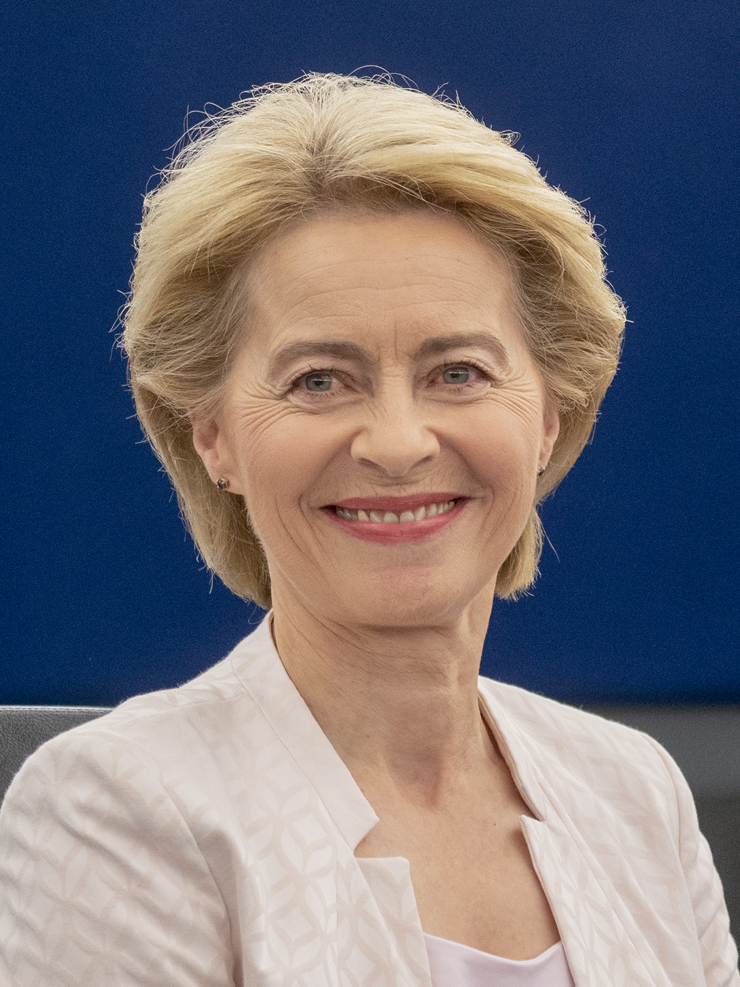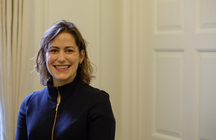Ursula von der Leyen – 2022 Speech on Ukraine, Moldova and Georgia Joining the European Union
The speech made by Ursula von der Leyen, the President of the European Commission, at the European Parliamentary Plenary in Brussels on 22 June 2022.
Thank you, Madam President, dear Roberta,
Cher Charles,
Honourable Members,
From the early days of the Maidan on, Ukraine has bravely resisted against Russia’s aggression. It went through repression and uprising. It went through territorial annexation, and now outright war. It is the only country where people got shot because they wrapped themselves in a European flag. Ukraine has gone through hell and high water for one simple reason: Its desire to join the European Union.
The European Commission answered to this desire explicitly. The opinion we presented last week recognises Ukraine’s aspirations. It acknowledges the immense progress that Ukraine’s democracy has achieved since the Maidan protests of 2014. Our opinion stems from a careful and thorough assessment of the reality on the ground. And this evidence tells us that Ukraine deserves a European perspective, and also the candidate status on the understanding that the country will carry out a number of further, important reforms.
Ukraine has proven, already before the war, that it is on the right trajectory. In the last few years Ukraine has reformed more than in the last decades. Thanks to the Association Agreement of 2016, Ukraine has already implemented roughly 70% of EU rules, norms and standards. It is already involved in many important EU programmes like Horizon Europe and Erasmus. Ukraine is a robust parliamentary democracy, it has a well-functioning public administration, which every day is passing the ultimate stress test of war. It has free and fair elections and a vibrant civil society, that holds the government to account. Year after year, small businesses and, in particular, young entrepreneurs have conquered new space in the country´s economy – and fought back against the power of oligarchs. Ukraine punches well above its weight when it comes to innovative start-ups and the digital economy. And all of this progress has been achieved because the people of Ukraine have Europe in their hearts and their minds.
But we also know that there is important work ahead. Take the fight against corruption. Ukraine has already taken important steps in the right direction. It has set up the necessary anti-corruption bodies. But now these institutions have to come to life. They need teeth, and the right people in senior posts.
Or take the excessive influence of oligarchs on the economy. Ukraine has adopted a bold law to break the oligarchs’ grip on Ukraine’s economic, political and public life. In fact, it is the only country in the Eastern Partnership that has done so. Now it is about turning the law into positive and enduring change. I discussed this and other issues with President Zelenskyy and Prime Minister Shmyhal during my recent visit to Kyiv. And I know that the people of Ukraine want to continue on the path of modernisation, the path of democracy, the path that leads to Europe.
Honourable Members,
After the fall of the Berlin wall, Jacques Delors said: ‘History is once again on the march in Europe. But it is for us to give history a meaning.’
Jacques Delors was referring to the need to open up our Union to all European countries. And his words are still true today. History is on the march. And I am not just talking about Putin’s war of aggression. I am talking about the wind of change that once again blows across our continent. With their applications, Ukraine, Moldova and Georgia are telling us that they want change. They want more democracy, more freedoms and stronger reforms. They are telling us that they want Europe. We have a responsibility towards them, but we also have a responsibility towards ourselves to make the right choice. So let me speak briefly about our assessment for Moldova. Moldova has taken decisive steps towards Europe, too. With a clear mandate from its citizens. It is on a real pro-reform, anti-corruption and European path for the first time since independence. And this is why it deserves the European perspective and candidate status, again on the understanding that the country will carry out a number of further, important reforms. In particular, its economy and public administration require major efforts. But provided that the country’s leaders stay the course, we believe the country has the potential to live up to the requirements.
Georgia shares the same aspirations and potential as Ukraine and Moldova. Its application has strengths, in particular the market orientation of its economy, with a strong private sector. To succeed however, the country must now come together politically. It must design a clear path towards structural reform and towards the European Union. A path that concretely sets out the necessary reforms, brings civil society on board and benefits from broad political support. This is why we recommend to Council to grant Georgia the European perspective, but to come back and assess how the country meets a number of conditions before granting it candidate status.
Honourable Members,
How far Ukraine, Moldova and Georgia will come and how quickly they proceed will depend first and foremost on their actions and their progress. It is a merits-based approach. But how we respond to their passion and their progress is our choice, and ours only. This Parliament has already spoken, loud and clear. I would like to thank you again for that. It is now up to the European Council to decide, and live up to the historic responsibility we are confronted with.
The history of our Union is one of young democracies getting stronger together. It is the history of Germany’s rebirth after the war. It is Greece, Spain and Portugal moving fast from dictatorship to democracy in the mid-1970s. It is the democratic uprising that brought down the Iron Curtain. It is the long path of reconciliation in the Western Balkans. A path that must lead all the six Western Balkan countries to join our Union. And the next chapter is being written today by the brave people of Ukraine, and by all of us, who must accompany them on their European path. Again, this is Europe’s moment. And we must seize it.
Long live Europe.


